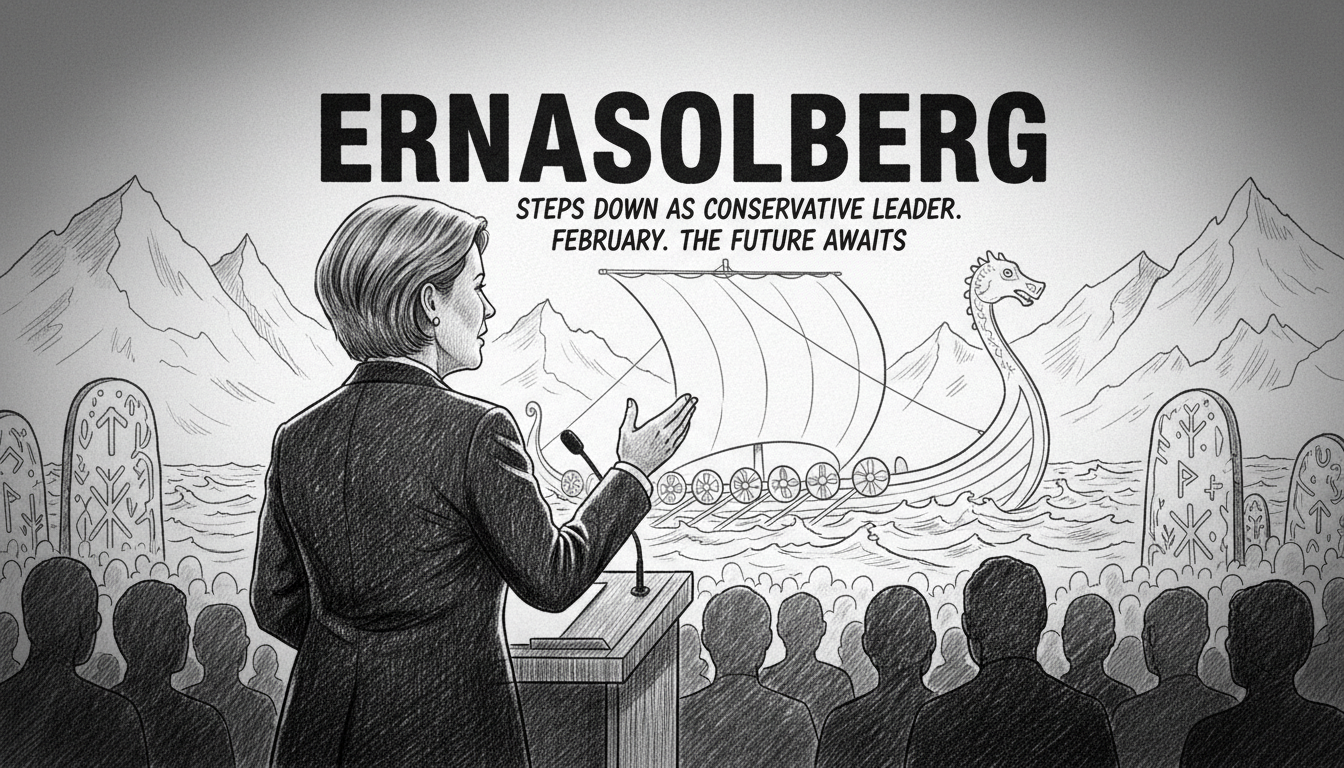Former Norwegian Prime Minister Erna Solberg has revealed she planned to resign as Conservative Party leader regardless of the last election outcome. Solberg made this surprising announcement during a seminar at the Norwegian parliament's press facility. She confirmed her decision in a conversation with political journalists.
Solberg stated she knew since her election in spring that she would step down at the first party conference following the election. She explained this decision remained unchanged whether her party won or lost the recent parliamentary contest. The Conservative leader emphasized this was always part of her planned leadership transition.
The veteran politician discussed this matter with close friends before making it public. Her husband, Sindre Finnes, was aware of her decision beforehand. Solberg was re-elected as Conservative leader at the party's national conference in March. The next regular conference was scheduled for 2027.
Solberg clarified her position about necessary leadership changes in Norwegian politics. She noted that generational shifts must happen at appropriate moments in political cycles. Had she become prime minister again, she would have continued in that role while stepping down as party leader. This dual approach reflects common practice in Norwegian parliamentary systems.
Norwegian political parties typically hold extraordinary conferences for significant leadership changes. Solberg confirmed she will officially step down during an extraordinary party conference in February. This timing allows for orderly transition planning before the next election cycle.
The announcement marks a significant moment in Norwegian conservative politics. Solberg served as Norway's prime minister for eight years before the last government change. Her leadership shaped modern Norwegian conservative policies on energy, economy, and international relations.
Political analysts note this planned departure differs from typical resignation scenarios. Most party leaders step down following election losses, not regardless of outcomes. This approach suggests careful succession planning within Norway's Conservative Party.
The coming months will reveal potential successors for the Conservative leadership position. Several prominent party members likely will consider launching leadership campaigns. The extraordinary February conference will determine Norway's conservative political direction for coming years.
International observers watch Norwegian political developments closely. Norway's stable democracy and energy policies make its leadership changes relevant beyond national borders. Solberg's departure timing coincides with broader European political realignments.
Norwegian politics operates through proportional representation and multi-party coalitions. Party leadership changes can significantly impact government formation possibilities. The Conservative Party remains one of Norway's two dominant political movements alongside the Labour Party.
Solberg's tenure saw Norway navigate complex energy transitions and European relations. Her successor will inherit these ongoing policy challenges while defining new conservative approaches. The February conference will mark both an ending and beginning for Norwegian center-right politics.

